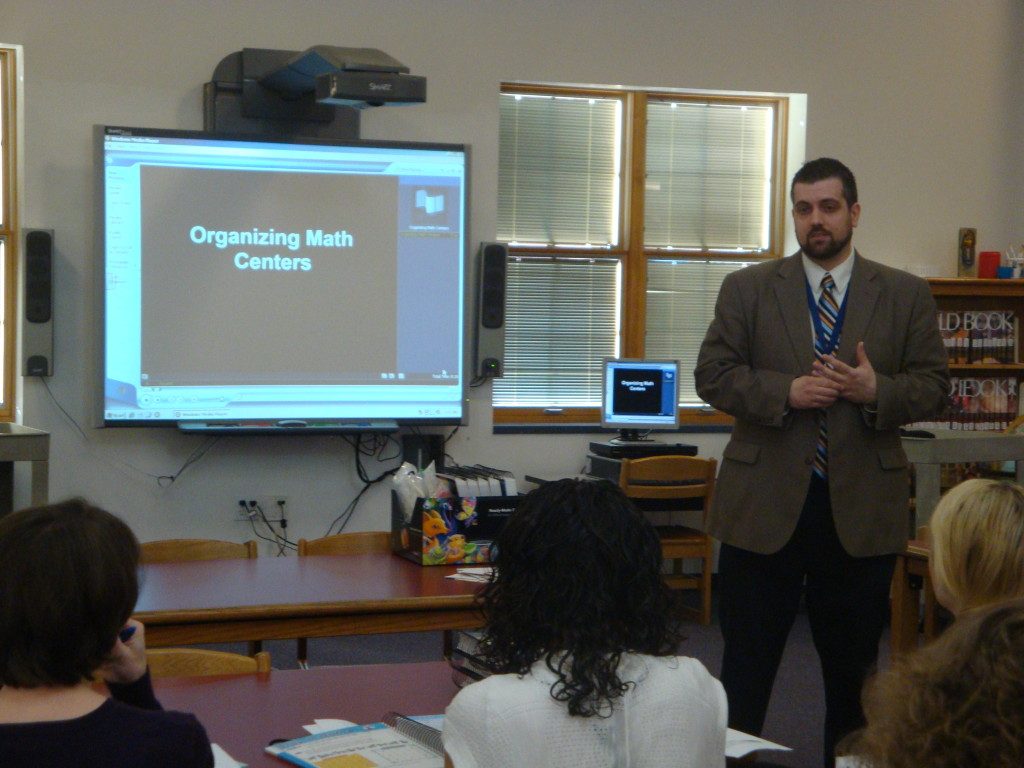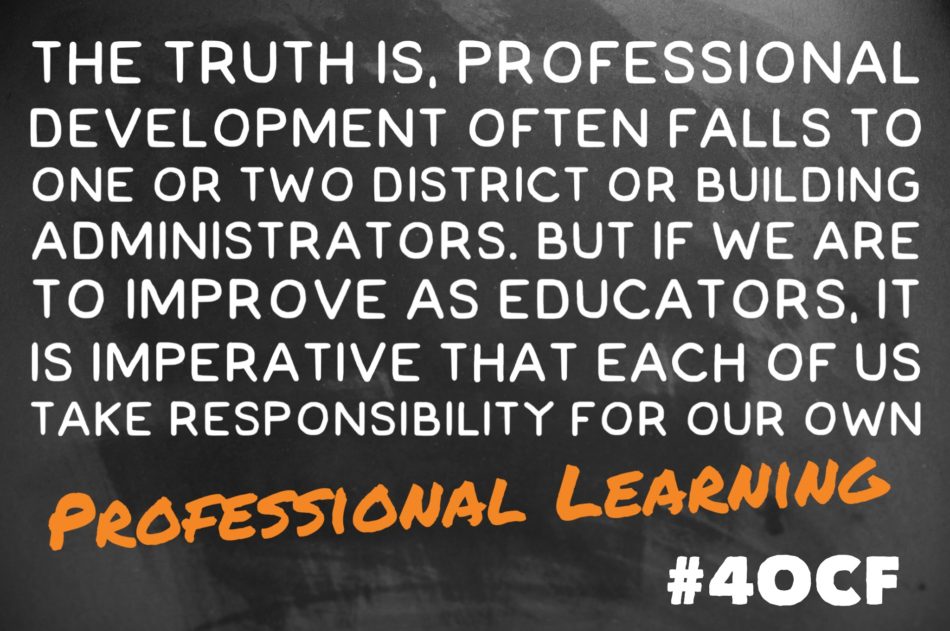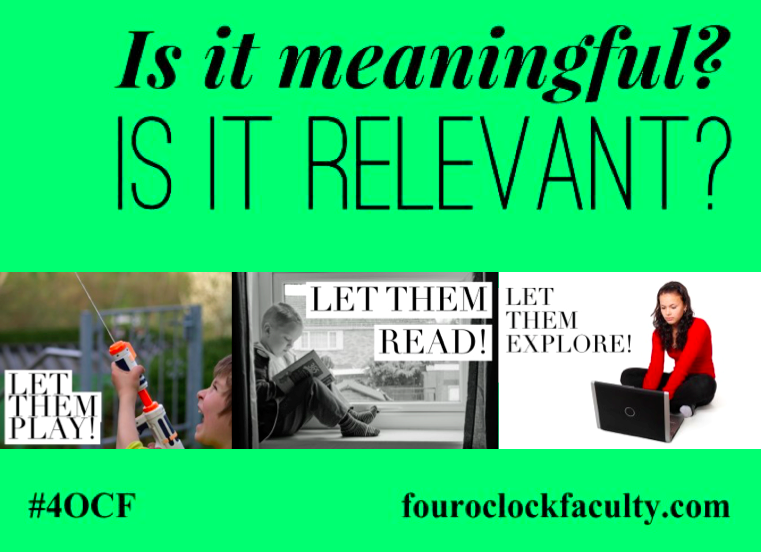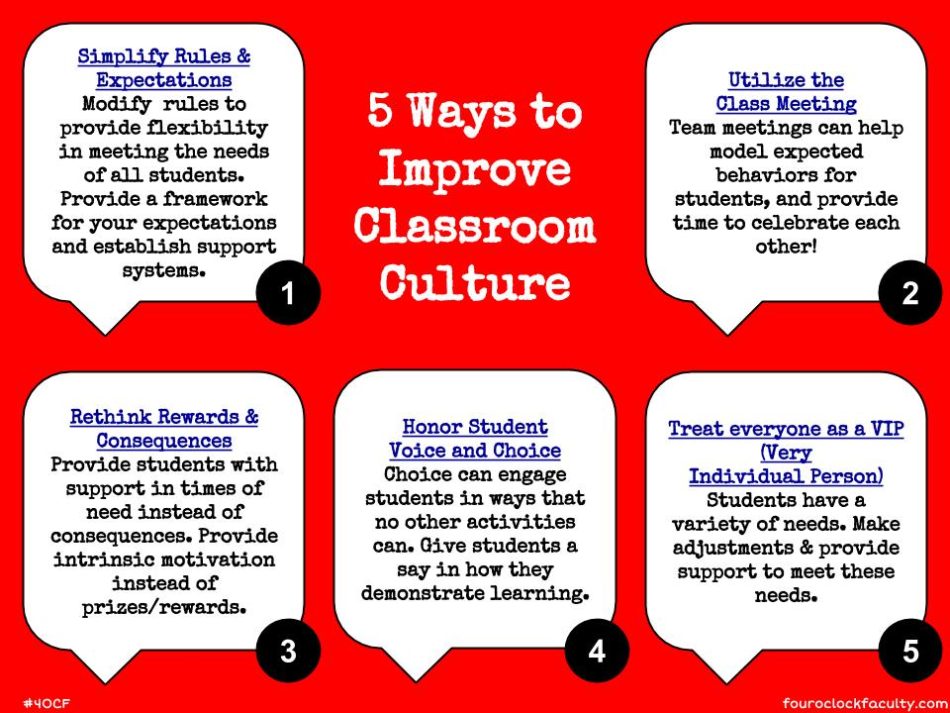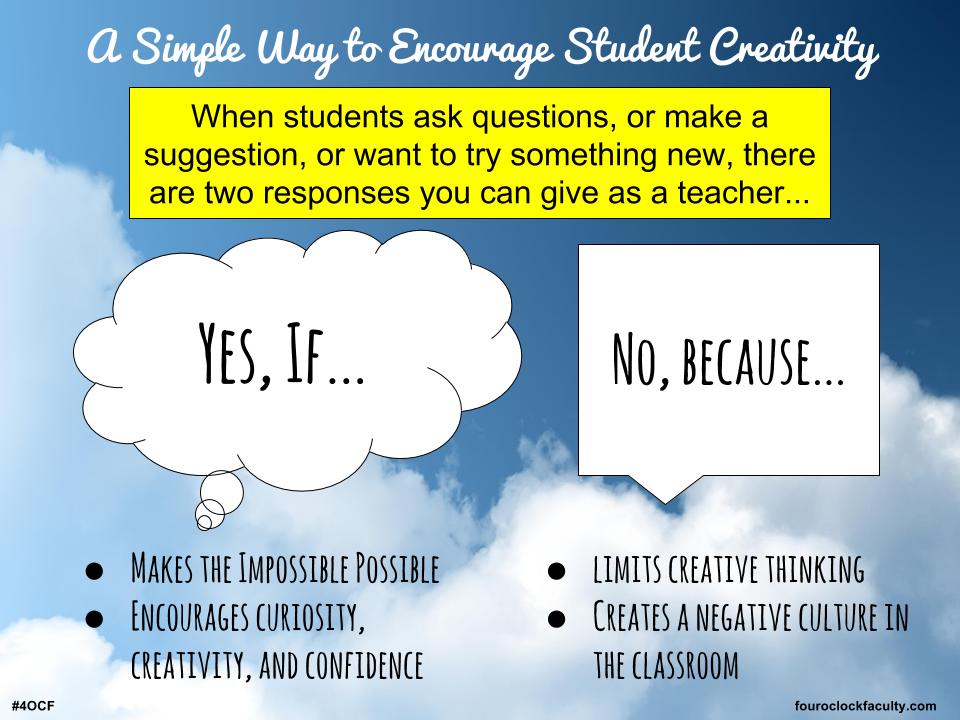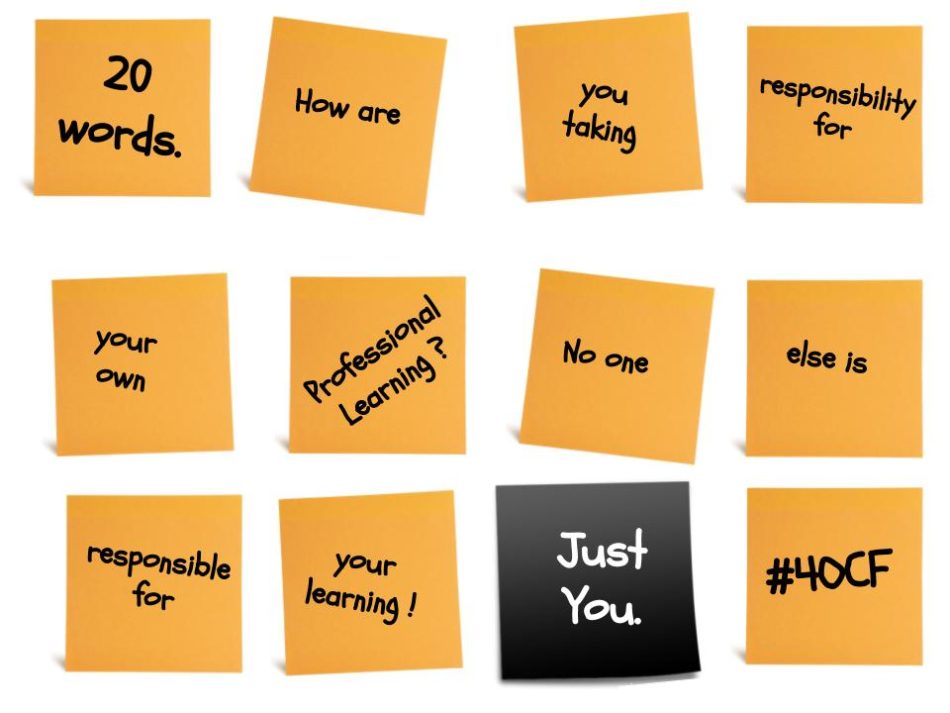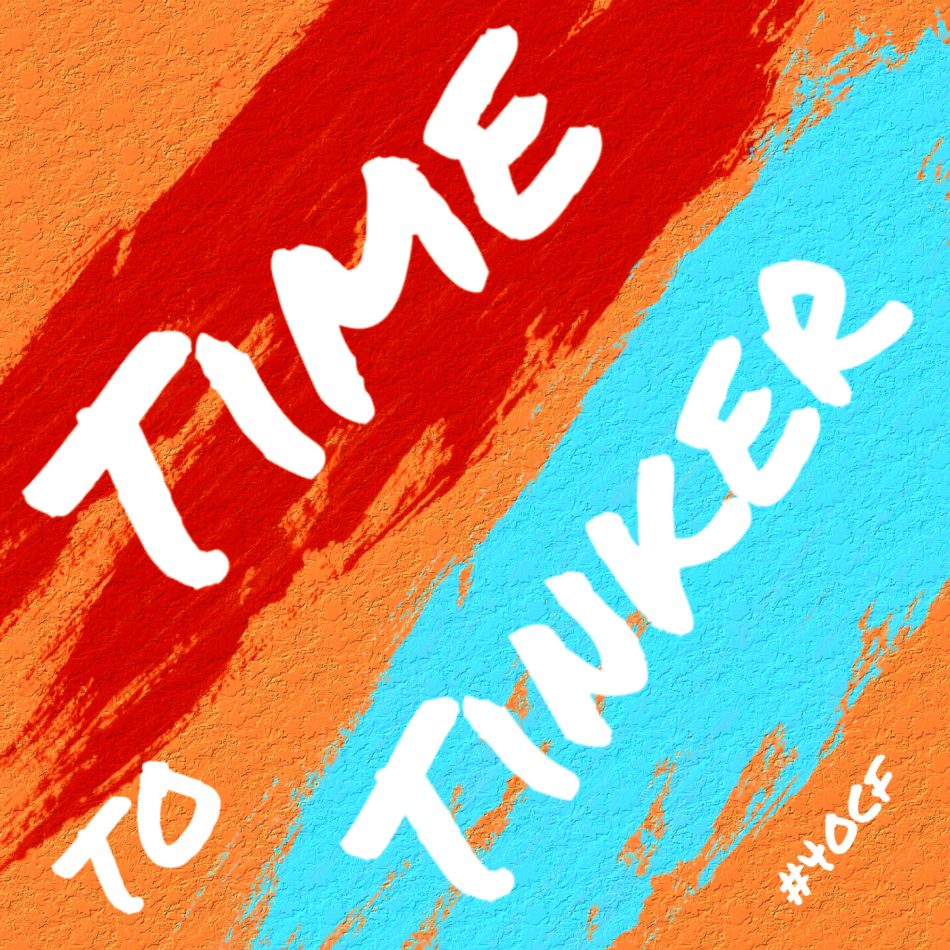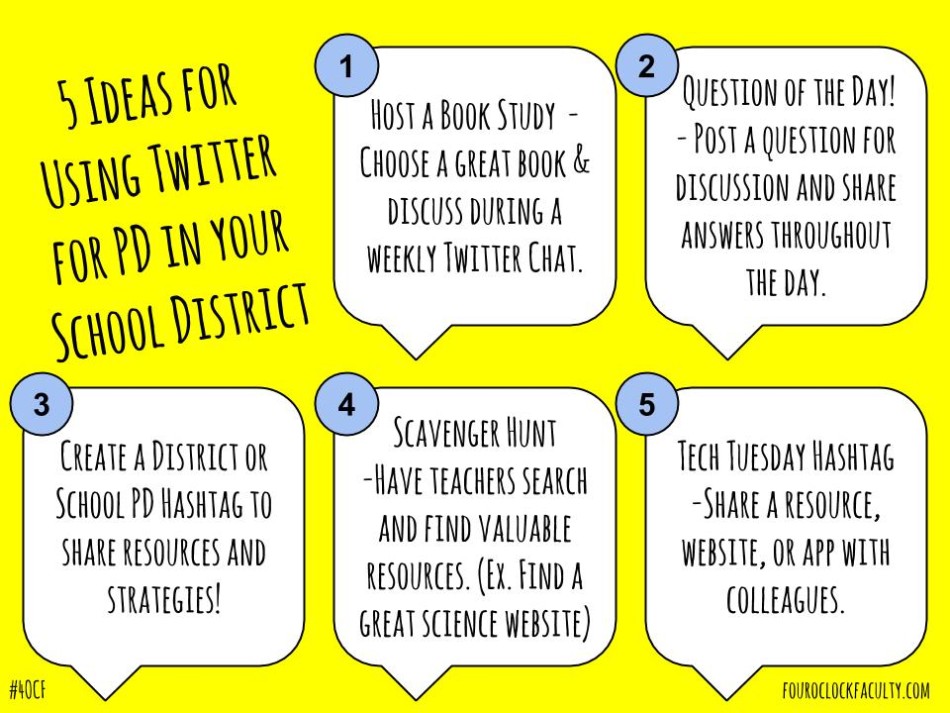Rich Czyz is Principal of the Yardville Elementary School in New Jersey and Co-Founder of FourOClockFaculty.com and the author of his book, The Four O’Clock Faculty: A Rogue Guide To Revolutionizing Professional Learning.
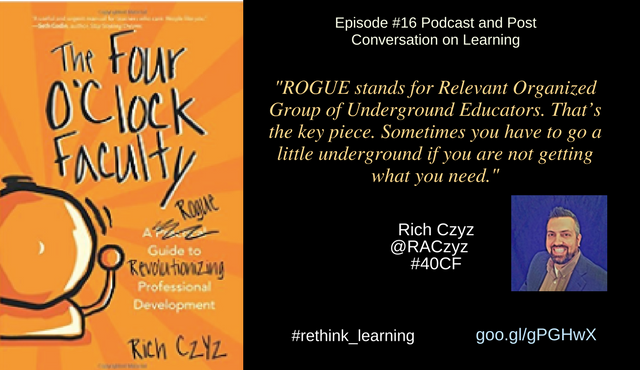
Podcast: Play in new window | Download
I started following Rich Czyz and Four O’Clock Faculty on Twitter several years ago and was amazed by how much he was sharing. Rich with Trevor Bryan post almost every day. They even wrote a section on culture in my book. When I finished reading Rich’s latest book, I just had to invite him to have a conversation. Below are excerpts from the podcast:
Can you share with my audience about you, your family, and your background?
I live in Bucks County, Pennsylvania with my wife and three children. We really enjoy the area and I work in New Jersey. I started as a fifth-grade teacher and worked my way up through instructional coach to technology coach to a supervisor and then as a director of the curriculum. I felt I needed to be back with students so I took a principal’s job at a wonderful place to be every day in the 2nd and 3rd-grade building. I’m lucky to hang out with kids every day and collaborate with teachers.
Why are you so passionate about changing the culture of professional learning?
I’ve sat through a lot of professional development and been responsible for planning professional development (PD). Sitting through a lot of it, I’ve felt that it is not where it needs to be. My personal belief is that professional learning and professional development is the one thing that educators can do in order to change education. They can take charge of their own professional learning. A lot of times PD is left in the hands of a couple of district administrators or building principal. Leaving it in their hands, sometimes teachers are not necessarily getting what they need. It is the one thing that can really change the outcomes that we are seeing in classrooms. We are missing professional learning and development that is connected to what we are doing in the classroom.
Is that why you and Trevor Bryan started the Four O’Clock Faculty and posted tips and ideas often?
Trevor and I were colleagues in my first job where he was the art teacher at a new school. When I taught 5th grade, he was my students’ art teacher. We found that we were very similar in our beliefs about education. Trevor and I had some ideas about professional learning and development to help colleagues grow and learn so we decided to start a blog and reflect on our own learning. It all started on a snow day in 2015 with unexpected time and decided that day was the day to start our blog, Four O’Clock Faculty. I wrote two posts that day that started it off. It gives both Trevor and I a platform for sharing our message which we think is an important one about really inspiring students with creativity, collaboration, and getting them to authentic, relevant learning. We’re excited about it and we post almost every day. We recognized that visuals and simple messages are what everyone seems to gravitate to. So we create visuals with tips and short messages for educators to learn something in a quick and easy way.
Read more about the origins of the Four O’Clock Faculty.
I read your new book, The Four O’Clock Faculty: A Rogue Guide To Revolutionizing Professional Learning. My focus for years has been professional development. Now I call it professional learning and this is the book all of us need to read. Tell me your journey in writing it.
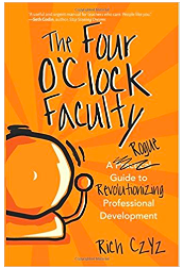 It kind of started with a couple of blog posts early on for Four O’Clock Faculty. It kind of blossomed into an idea for a book. I realized that I have a lot to share about professional development that people would enjoy reading about. I reached out to several educators who had written books to ask them about the process of writing a book. I was fortunate to connect with Dave Burgess with his Teach Like a Pirate theme and the Dave Burgess consulting group in order to get the book published. When I first met with Dave, he said: “if this is what you want to do this needs to be your manifesto about professional development and professional learning.” That’s really what I tried to do by stating my beliefs about what professional development and professional learning should look like and hopefully help everyone with tips on how to improve professional learning in their own setting.
It kind of started with a couple of blog posts early on for Four O’Clock Faculty. It kind of blossomed into an idea for a book. I realized that I have a lot to share about professional development that people would enjoy reading about. I reached out to several educators who had written books to ask them about the process of writing a book. I was fortunate to connect with Dave Burgess with his Teach Like a Pirate theme and the Dave Burgess consulting group in order to get the book published. When I first met with Dave, he said: “if this is what you want to do this needs to be your manifesto about professional development and professional learning.” That’s really what I tried to do by stating my beliefs about what professional development and professional learning should look like and hopefully help everyone with tips on how to improve professional learning in their own setting.
Why do you believe that professional learning should be meaningful and relevant for educators? What are a few learning experiences that support your ideas of meaningful professional learning?
For me, it all started with a learning experience that I had as a second-year teacher when we were implementing a new writing rubric when I taught math and science. The district provided year-long professional development on the new rubric, however, it was not something I was using in my math and science classes. At that point, I realized that I was forced to sit here and I’m not using this rubric and that I could use my time more effectively if I was able to work on some other things. It stemmed from that and other things that I saw as an administrator that professional learning is an important piece. A lot of times we are not giving educators what they need.
One example I always share is in my former district we used to force our school nurses to come to our staff meetings. When we were talking about language arts or mathematics, our school nurse was forced to sit there and listen. I recognized then that we are not doing it right. So if I’m a school nurse, help me learn about head trauma and where we’re going with concussions in athletics. Or if I’m a music teacher, what can I do to help my students learn in the music realm? We need to get professional learning that is meaningful and relevant. Districts can put some things in places like STEAM education or creativity by providing choice and integrating those big ideas into what is relevant for teachers.
What are a few ways to change a school or district’s culture surrounding professional learning one bite at a time?
In my previous district, we would focus on one staff meeting as professional learning as opposed to a list of policies and procedures. We also did an Edcamp to take that learning and put the responsibility back on our educators. Even now, as a principal of a 2nd and 3rd-grade building with 40 staff members, we try to focus our monthly meeting on growing as professionals. I like to to do a lot of modeling since that is an important piece of changing that culture. If, as the leader, I’m expected to see a certain type of instruction in the classroom, then I should be modeling that instruction for my educators at staff meetings. That professional learning piece is a huge part of that staff meeting culture. That is where you take one bite at a time because you have to take baby steps because not everyone is ready for the change. There are some people that are so ingrained in how PD has been done that it has to start small and build from the ground up. It takes a couple of years, but I think that culture can change around professional learning.
Let’s talk about the “Angry Administrator Update” that you include in each chapter. Do you have a story about this you would like to share?
So I believe I think differently than a lot of administrators and there are a lot of great administrators out there who are doing wonderful things. I think all of us need to connect with educators. I will always call myself a teacher first and try to never forget that. But there a number of administrators out there who do get angry when you try to change things. They’re kind of in love with the status quo and doing things a certain way. I just felt it was important to help those educators that were going to try to change professional learning to get that support that they need. So these updates are tips to help administrators who want ideas on how they can change and support their educators. It is about having the best interests of students in mind as well.
I have to ask you about the chapter about Going Rogue. Why do you call it a Rogue Guide? How do you start your own ROGUE professional learning?
The ROGUE chapter actually started as an early morning writing experience before I started my day with the kids and getting off to work. It was one of those inspirational mornings where I had recently talked to a colleague who was forced to sit through staff meetings that were just a list of procedures and policies. That colleague and a couple of others at his school decided to start their own weekly group where they read a blog post and meet to reflect on it. That’s kind of where that ROGUE spirit comes from and getting what they need. If they’re not getting what they need from their administrators or from the school district, then I believe it is important to get what they need on their own. I see educators at Edcamps on Saturdays who take time out of their personal lives to be together to grow as learners. I feel it is our responsibility as educators working with students to make sure we are doing everything we can to learn professionally.
ROGUE stands for Relevant Organized Group of Underground Educators. That’s the key piece. Sometimes you have to go a little underground if you are not getting what you need.
The one thing that is a real problem that I hear from teachers is time. Where can educators find extra time in their day to incorporate personal professional learning?
There is a chapter on Time. As educators, we tend to put more and more on our plates. It seems like there is never enough time to do all the things that we used to do. One thing I would suggest is first to find those things on your plate that are not relevant or meaningful and not effective. There are things that we have been doing as educators that we continue to do just because we’ve been doing them. Those things probably can go so they can find more time for those things that are meaningful, relevant, and effective. As far as professional learning, from something as my previous district, our teachers were required to be in the building 15 minutes before the day started and 15 minutes after the day ended for students. So we took those extra 15 minutes before and after to learn something new. We did something called Tech Mex Tuesday combining that idea of Taco Tuesday and Tech and sharing with teachers. We would start right when students got on the buses and show a relevant tech resource along with chips and salsa. What usually happened is that teachers that were learning something stayed longer than the 15 minutes required time to continue their own learning. Lunchtime is also another time for learning even though it can be the only time that teachers get to themselves. But taking once a week or even once a month to sit down with colleagues and learn something new during that lunchtime can be an important step as well. That first step might be finding those ROGUE educators as collaborators who want to make learning better for students.
Let’s talk about Twitter. That’s how I met you. How did Twitter change your view on what is possible for education?
So Twitter completely changed my worldview. Before Twitter, I was an educator that was not connected. I swore off Facebook because I was told that students and parents would try to connect with me and I was told to stay as far away from that as possible. I attended a professional learning session at a conference where they were talking about Twitter, and I was able to open an account. I let it sit for a couple of months and then I came back to it. I saw people were sharing relevant resources and ideas. I was finding things that were helping me. The next thing I jumped into Twitter chats that are amazing sources of information for educators and just really connecting. So, the idea that I was able to connect to you and other educators out there was amazing. Now when I see you and others that I met on Twitter at a conference, I feel like I’ve already known them. Twitter allows that personal connection even before the face-to-face meeting. Twitter allows for that collaboration and sharing and extends learning beyond your four walls.
Would you like to add anything more for my audience?
I’d like to add what we are doing on the Four O’Clock Faculty blog posting micro-learning sessions. They are short videos around 2-3 minutes each. The idea is from my children who do martial arts where their instructor would do these short videos of skills. He would teach the skill, have them practice, and then jump into another skill. I was thinking about that in terms of education, so we created these micro-learning videos where teachers can get an idea of a skill or something that they can practice. Then there’s a call to action on how they can take that idea and bring it back to their classroom. For example, one idea was how to ask more effective questions in the classroom and how to get students questioning. The call to action was to have teachers to write 10 really good questions that they want to ask their students during that week. The micro-learning sessions are another way that educators can practice skills in a short amount of time frame.
***
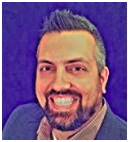 Rich Czyz is the Principal of the Yardville Elementary School in New Jersey. He is the co-founder of the Four O’Clock Faculty blog, which can be found at fouroclockfaculty.com. He is the author of The Four O’Clock Faculty: A Rogue Guide To Revolutionizing Professional Learning. Rich has a passion for modeling and implementing innovative strategies to help learners and teachers improve every day. Rich is active on Twitter (@RACzyz) #40CF and can be reached via email at richczyz@gmail.com.
Rich Czyz is the Principal of the Yardville Elementary School in New Jersey. He is the co-founder of the Four O’Clock Faculty blog, which can be found at fouroclockfaculty.com. He is the author of The Four O’Clock Faculty: A Rogue Guide To Revolutionizing Professional Learning. Rich has a passion for modeling and implementing innovative strategies to help learners and teachers improve every day. Rich is active on Twitter (@RACzyz) #40CF and can be reached via email at richczyz@gmail.com.
****
Interested in checking out more of the Rethinking Learning podcasts and reflections, click on the podcast tab at the top, the logo below, or go to https://barbarabray.net/podcasts/
For more information about Barbara’s book, Define Your WHY, go to this page or click on the image of the book for resources, questions, and links.



